TCN Survey: Tour caddies weigh in on slow play and how to fix it
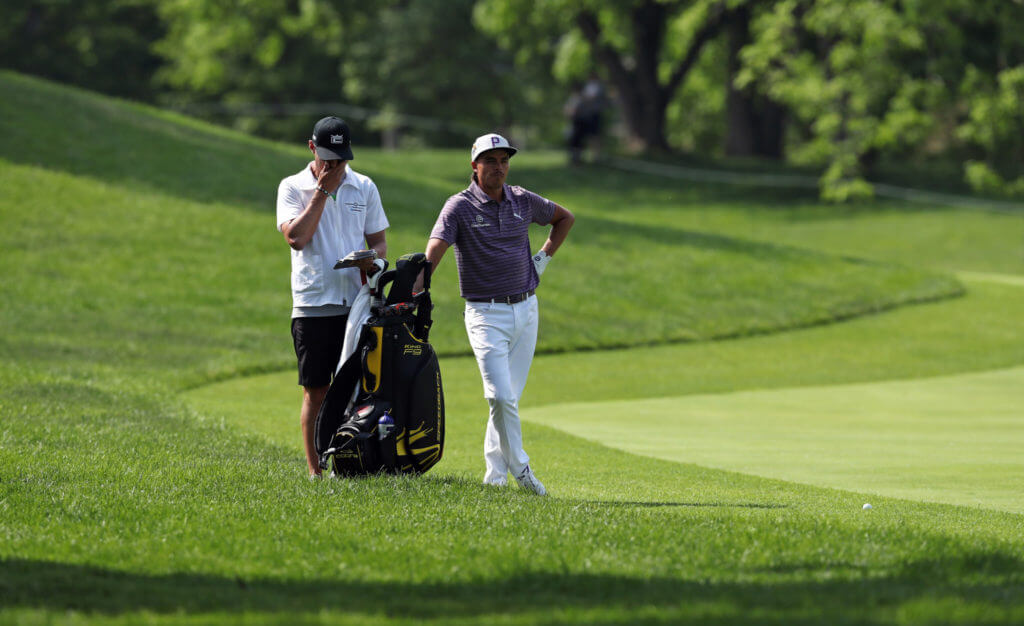
Slow play has long been a hot-button issue in golf and especially over the last several years on the PGA Tour.
Sure, purses are higher than they’ve ever been so there’s a lot riding on every stroke, but even still — anything approaching 5 hours in groups composed of the best players in the world is excessive… yet it happens way more than it should.
The USGA put Rule 5.6 in place on Jan. 1, 2019, to encourage prompt play:
- Players should recognize that their pace of play affects others and they should play promptly throughout the round (such as by preparing in advance for each stroke and moving promptly between strokes and in going to the next tee),
- A player should make a stroke in no more than 40 seconds (and usually in less time) after the player is able to play without interference or distraction, and
- Committees should adopt a Pace of Play Policy (rather than only say they may do so).
In addition, Rule 6.4 expressly allows playing out of turn in match play by agreement, and for stroke play, affirmatively allows and encourages players to play out of turn in a safe and responsible way to save time or for convenience (also known as “ready golf”).
This, sadly, has not translated on the PGA Tour and at times has made the product difficult to watch.
Luke Donald, former world No. 1, said years ago, “Slow play is killing our sport,” a sentiment shared by many then and now.
So, how then, do you fix the epidemic?
RELATED: 2019 PGA Tour caddie survey | Caddie survey — Tiger Woods edition
It seems everyone has an opinion, so we surveyed 21 caddies on the PGA Tour — the people on the front lines of this issue every week — to find out why play is so slow and asked for their ideas on how to fix it. Here’s a collection of their most insightful answers (with tweets sprinkled in from several in and around the world of golf discussing slow play)…
-
Why do you think pace of play is such an issue in professional golf?
“First, because a player’s livelihood depends on every single shot taken. Second, too many players and caddies wait until it’s their turn to start preparing for the shot. The PGA Tour should just adopt ‘Ready Golf.’”
“It’s because they’re playing hard golf courses and playing for a lot of money. Some courses you have to walk far distances from green to the tee. The pins are tucked 3 to 4 paces from the left or right on each green. There are always drivable par 4s and par 5s that you can reach in two, the groups don’t let you hit up, so you wait for them to finish out. There’s also 18 holes. It’s impossible to finish in under 4 hours. Someone should start a 12-hole Tour!”
“Golf is such a mental game. There’s a lot of information to process before hitting a golf shot. Add the fact that if the player doesn’t play well then he doesn’t earn a paycheck, and if he doesn’t play well for an entire season then he is relegated off the tour. That’s a whole lot of pressure to be working under and therefore most guys take their time and gingerly work through every single stroke.”
“People seem to think pace is an issue, but I feel every group has moments of slow play and moments of quicker play. Threesomes are naturally slower than twosomes. So, I think if it’s an issue then it is only the first two days.”
“Too many players in the field.”
“Because most aren’t prepared to play when it’s their turn, especially on the greens. There’s over-reading of putts, looking at them from every possible angle most of which can be done before it’s their turn.”
Slow play in golf is disrespectful & unfair to the rest of the field … there’s got to be a better way to monitor & enforce these situations
— Zac Blair (@z_blair) February 17, 2019
“Regardless of passage of time, it’s a competitive advantage to be a slow player. It creates an uneven playing field. Because there are no real repercussions (strokes), players like Bryson DeChambeau, J.B. Holmes and Sergio Garcia get to play at the exact pace they want to every round. Every round. Players like Pat Perez and Bill Haas rarely, if ever, get to play at their desired pace. Fast players get on tour and learn how to play slower. It should be the other way around.”
“Total time isn’t an issue. You’re only going to be able to walk so fast and have good info and crowd control. There are definitely players that are too slow to process their info or don’t start any part of their routine until it’s their turn. Those players are the issue.”
“It’s an issue because of the appearance it makes to the fans. I think players like to moan about it more than it really makes them feel.”
“The biggest reason, in my opinion, is because people aren’t ready when it’s their turn. For example: When your competitor is getting ready to play, you should be getting the number and going over the shot… Not starting that process when it becomes your turn to play.”
“Over-analysis of a simple shot.”
“Because there’s no penalty – enforced — for being slow.”
-
What kinds of things could be done to enforce slow play?
“A group should be warned when they are out of position. Then each player should be timed individually. One stroke for the first bad time; two strokes for the second; three strokes for the third and so on. Also, certain course setups and weather conditions should be a determining factor in how much time each player gets to play a shot.”
“There’s a rule for a reason. Rules officials just never enforce it. You have 40-something seconds to hit the shot when it’s your turn. Stroke on the spot after a warning.”
The problem with slow play in golf is that the players don’t seem to recognize that being ready to hit within the allotted time limit is a skill. Calculating wind, distance, etc. quickly should be part of being good at golf pic.twitter.com/RlUiTuVTUf
— max homa (@maxhoma23) July 7, 2019
“A simple memo from the tour/rules committee that there will be a zero tolerance for slow play policy, effective immediately. If anyone who is on the clock surpasses their allotted time, then a one-stroke penalty will be assessed. This would single handedly get the boys playing quicker. The problem is the tour/rules committee isn’t serious and improving slow play.”
“Start handing out one-shot penalties for every bad time. Warnings don’t solve anything.”
“Any time you assess penalties you will speed play.”
“Have a time clock.”
“Make golf 12 holes. Every course in the world. Three, six-hole tracks.”
“It’s high time to profile. Everyone knows it’s the same 10-15 guys every week. That’s all it takes to slow down an entire 156-player field. The officials, players and caddies all know who the slow players are, and they should be on the clock from the first tee. If they show they’re making an effort and keeping up, the officials can leave them by, say, the fourth hole. Many times, slow groups aren’t put on the clock until the 15th hole, and by then it’s too late.”
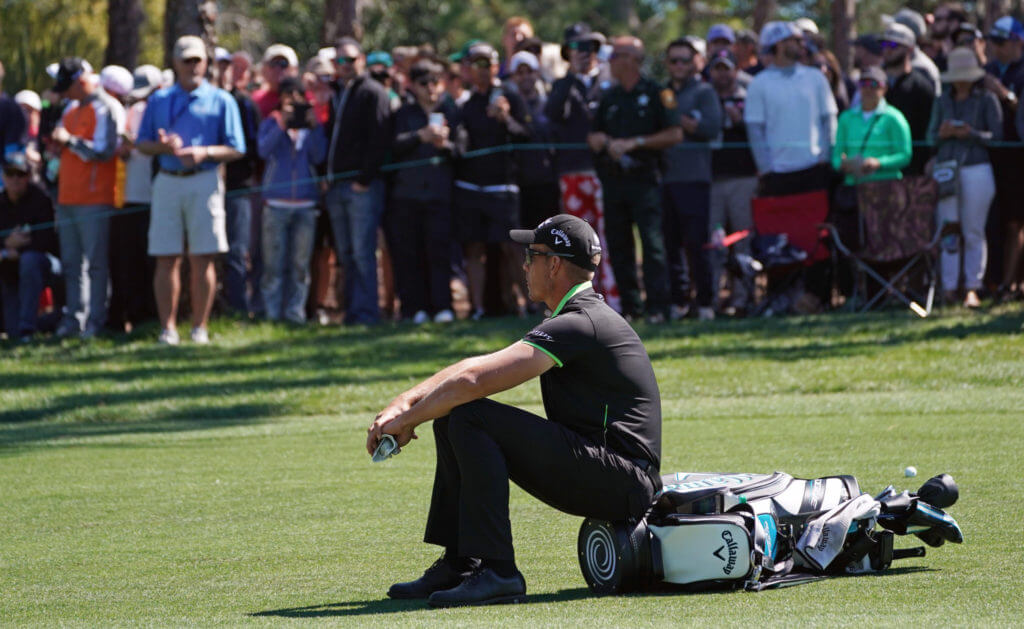
“Checkpoints. Communication from officials. Individual reviews throughout the season. Financial penalties based on percentage of earnings for the week. No strokes.”
“Give individuals shots on the spot after a warning. And so on and so on based on slow play.”
“One bad time warning then one stroke. Fines don’t matter and don’t change anything. If you truly started handing out stroke penalties, that would change it drastically.”
“First of all, the slower players should be singled out and timed individually, not the entire group. It’s almost always one or two players in the group, not all three that are the problem. They should be monitored for a hole, then coached as to where they are taking too much time. For example, on the greens, or even walking too slowly. If they don’t show improvement by the third hole of being timed, then a penalty shot should be added to their score.”
“A slow player should be warned a first time of slow play. The second time he should be penalized two strokes. On the third time, he should be DQ’d.”
😡 "It's the bane of professional golf"
Strong stuff here from Darren Clarke.
⬇️⬇️⬇️https://t.co/fdOS80adif
— bunkered (@BunkeredOnline) July 9, 2019
-
What ideas do you have to speed up play?
“Play ‘Ready Golf.’ Tour staff could properly trim around sprinkler heads in both the fairway and rough so they are easier to find.”
“Cut the purse by 70 percent. Or put the pins in the middle of the greens. Ha ha.”
“By seriously enforcing one-stroke penalties.”
“Enforce with a one-shot penalty for a bad time.”
RELATED: Geno Bonnalie explains how sending an email set up his journey to becoming a PGA Tour caddie
“’Ready Golf’ — forget all this honors, who’s away stuff.”
“Stroke penalties and players calling out the slow players publicly. I hate to say shame them, because there are some really good guys who are slow players. Nobody likes to rattle cages, but that needs to happen more. That or pair them with no filter Pat Perez every week and see what happens.”
“Penalize players. No green-reading books. Firmer and slower greens.”
“Enforce the rules in place more consistently on every hole. This would require more rules officials, of which some would be dedicated just to pace of play.”
from a friend at the Flushing Pitch & Putt — the insidious trickle-down effects of pro golf’s real slow play problem! pic.twitter.com/eDb5g4qhqb
— Brendan Porath (@BrendanPorath) July 3, 2019
“Players learning from veteran players how better to be ready when it’s their turn. The thing is, at a certain point you can’t speed up any more. On some of the hardest courses in the world, set up difficult, in sometimes difficult conditions, playing for their livelihood — how many minutes are we talking about saving here!?”
“The sacking up of rules officials to do the right thing rather than scapegoating lesser-known players and penalizing them. The final group(s) get too much leniency in this area.”
“The biggest problem is not being ready to play when it’s your turn. Simple things like walking faster, looking at your green contours book before you even get to the green (to already have an idea of what the putt is doing), talking about the shot (in the fairway) with your caddie while the other players are hitting their shot BEFORE it’s your turn to hit, talking about the shot with your caddie anywhere on the course with your caddie BEFORE it’s your turn to hit. Basically, using the time that’s available instead of WASTING it by waiting until it’s your turn to hit to even begin to talk about the shot (or putt) is such a huge problem.”
“Officials could do a better job pushing the lead groups as well.”
-
Without naming names, what kinds of things do you see from the notoriously slow players that drive you crazy?
“Not being prepared and ready to hit when it’s their turn.”
“Taking almost a minute waiting for the right wind.”
“The No. 1 thing that annoys me is when a caddie/player barely start discussing the shot after it’s finally their turn. This, in my opinion, is unacceptable. The player should be gathering all the information needed while his playing competitors are playing and should be ready to go once it is his turn.”
“Not ready when it’s their turn.”
But we don’t have an issue with slow play. 😂😂 https://t.co/PqeeXMHIaK
— Billy Horschel (@BillyHo_Golf) May 12, 2019
“They walk at a slow pace.”
“Lack of decision making, needing too much input about things that do not matter.”
“Not beginning their routine until it’s their turn. Giving certain decisions big names and bigger vocabulary words that everyone else can do in 5 seconds silently but takes them 30 seconds to define everything out loud. Indecision on every shot. Gamesmanship.”
“Too much time hitting shots. Backing off the ball more than once without outside elements affecting the shot. Not being able to walk inordinate amounts to assess shots, such as walking 50+ yards to evaluate their play.”
“They just take advantage of the whole time they can use at the moment, that’s the problem.”
“Not reading your putt until it’s your turn to play. If you’re second or third to go, you should basically have your putt read by the time it’s your turn to play.”
‘No one has the balls’: Brooks Koepka roasts PGA Tour rules officials for a lack of slow-play penalties https://t.co/1HLUqdY1Eb pic.twitter.com/FrThrInI2Z
— GOLF.com (@GOLF_com) February 6, 2019
-
If you caddie for a slower player, are there certain things you consciously do to try and help speed him up?
“Get to the ball first. He’s not slow though. That’s just something a caddie should always do.”
“Yes. I would be walking quicker and making sure we are ready to go once it is our turn to hit the ball.”
“I’ve never worked for a slow player.”
It’s time that professional golf does something serious for slow play…5h30min to play 18 holes on a golf course without rough is just too long…way too long! #stopslowplay
— Edoardo Molinari (@DodoMolinari) April 26, 2019
“Change their routine. Also get to the ball first and have all the information ready for when the player gets there.”
“Yes, absolutely. Get out in front of him and have every possible piece of information he may want by the time he gets to the ball. Know your answers before he asks. Give other players the go ahead if it’s close as to who is away. Just help them and your player by telling them it’s their shot. They’re thrilled when this happens.”
“Yes, such as getting to the ball quickly and making a decision quickly. Not waiting for him to get to the ball before getting the number and making a decision.”
-
How long do you think an average round, in ideal conditions, should take for threesomes?
18 caddies responded: “Between 4-4 ½ hours.”
1 caddie responded: “Between 4 ½-5 hours.”
1 caddie responded: “3 hours, 45 minutes.”
1 caddie responded: “3 ½ hours.”
-
What about twosomes on the weekend?
18 caddies responded: “3 ½-4 hours.”
3 caddies responded: “3 hours, 20 minutes or less.”
Slow play kills the game of golf…
Another Monday where people are discussing the nature of how the game is played and not the people winning the tournaments….
Unfortunately the tours won’t deal with the biggest problem facing golf.#40secondstohitashotatanygiventime— Thomas Bjorn (@thomasbjorngolf) February 18, 2019
-
Has there been a time that a slow player has negatively impacted your player’s score?
16 caddies responded: “Yes.”
5 caddies responded: “No.”
Here are some of the more detailed answers we received…
“Without a doubt. You affect the mindset, then you affect the score.”
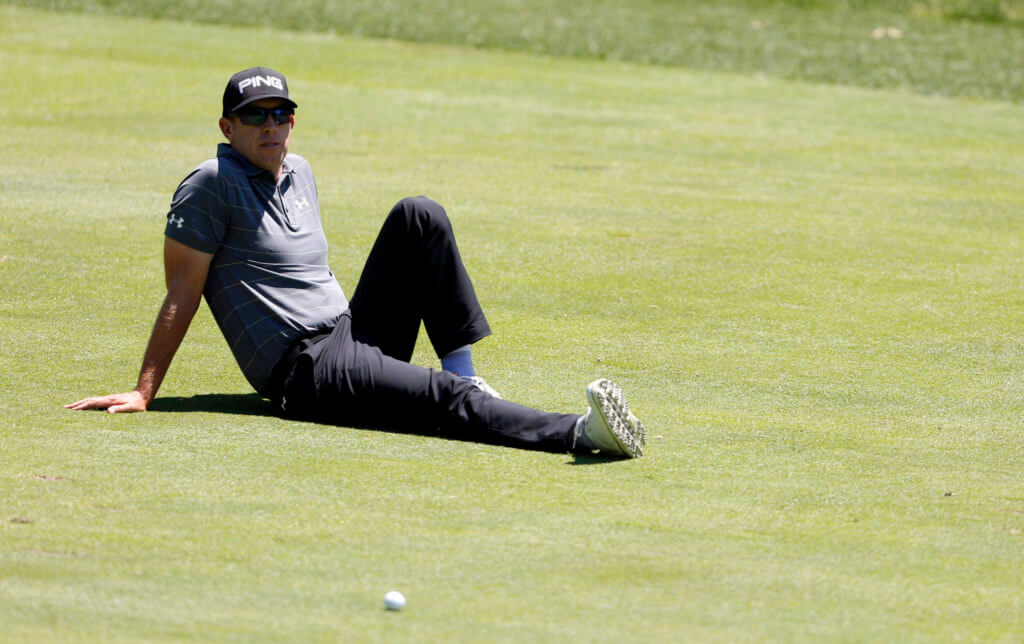
“Absolutely. More so that it bothers your player and takes them out of their own routines. When slower players contribute to the entire group being on the clock is when it’s really problematic. Your player needs to know their rights and understand what the officials are trying to do and speed up everything but their routine.”
“Absolutely. Takes all the flow out of the round. Indirectly, it affects the score.”
“Yes. All the time.”
“I’d say it affects his rhythm or attitude, but not score.”
-
Do you think there should be a physical shot clock on each hole for players and fans to see, in which case there is no need for warnings — it’s just cut and dry?
15 caddies responded: Yes
6 caddies responded: No
Here are some detailed responses…
“No, not on each hole. But perhaps once a group falls behind, that’s not a bad idea. However, if you’re doing that, there should also be a shot clock on how long it takes rules officials to show up and give a ruling.”
READ: Taylor Ford details his incredible journey to becoming a PGA Tour caddie
“No. That would be a little excessive and might get the rowdier fans to start yelling expletives at the slower players. Just start seriously penalizing guys. It’s that simple.”
“Sure, why not?”
“It’s tough to police, because really who would be in charge of when one player’s turn ends and the other begins? To people around the tour it would be obvious, but in the hands of volunteers it may be more difficult. Maybe we need to outfit every bag with something like a chess clock. When your ball stops, you hit the clock on your bag that stops your time and starts the next player’s clock. At the end of the day, divide total seconds by strokes taken. If you’re over 1 minute per shot, add two strokes to your score.”
“No shot-clock. Although almost every other profession sport is timed.”
“A trial period of this could be beneficial for the future of the game.”
“It would be great, but extremely difficult to logistically do every week.”
“No. But if there were it should just be on the greens and that would be a big enough impact.”
“That would simply be fantastic.”




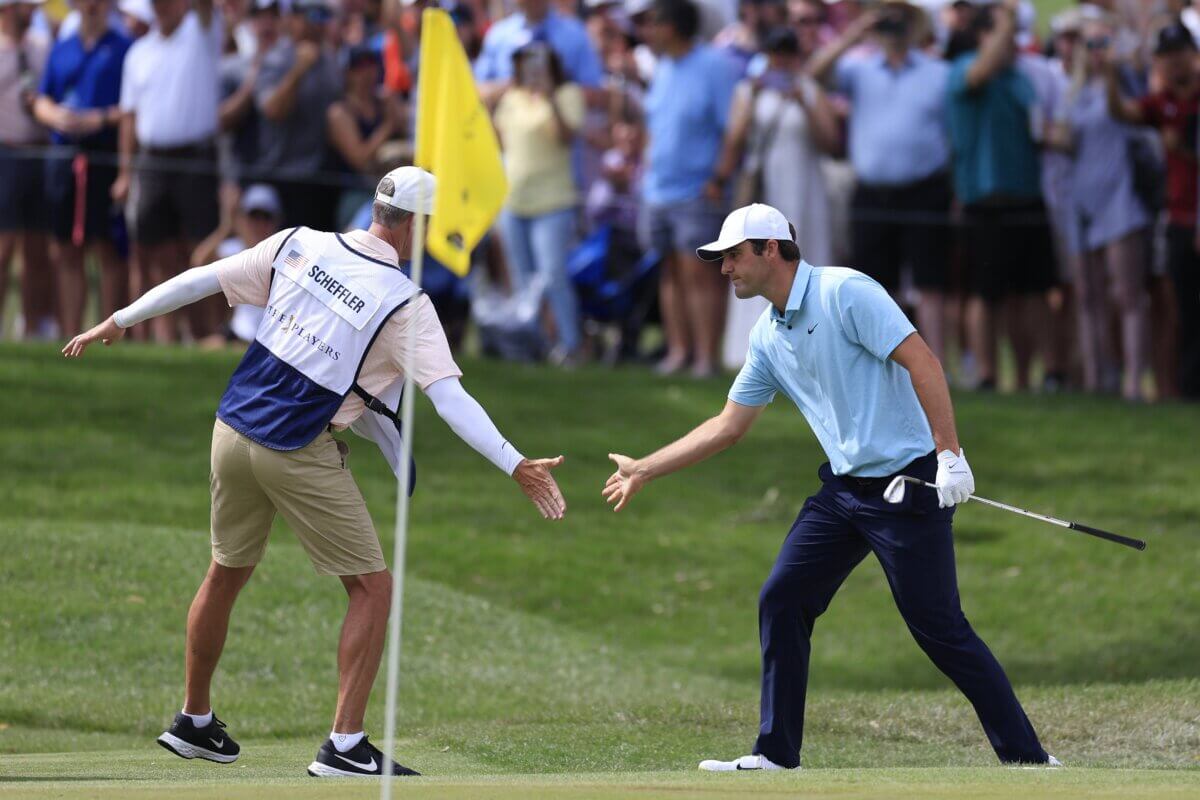

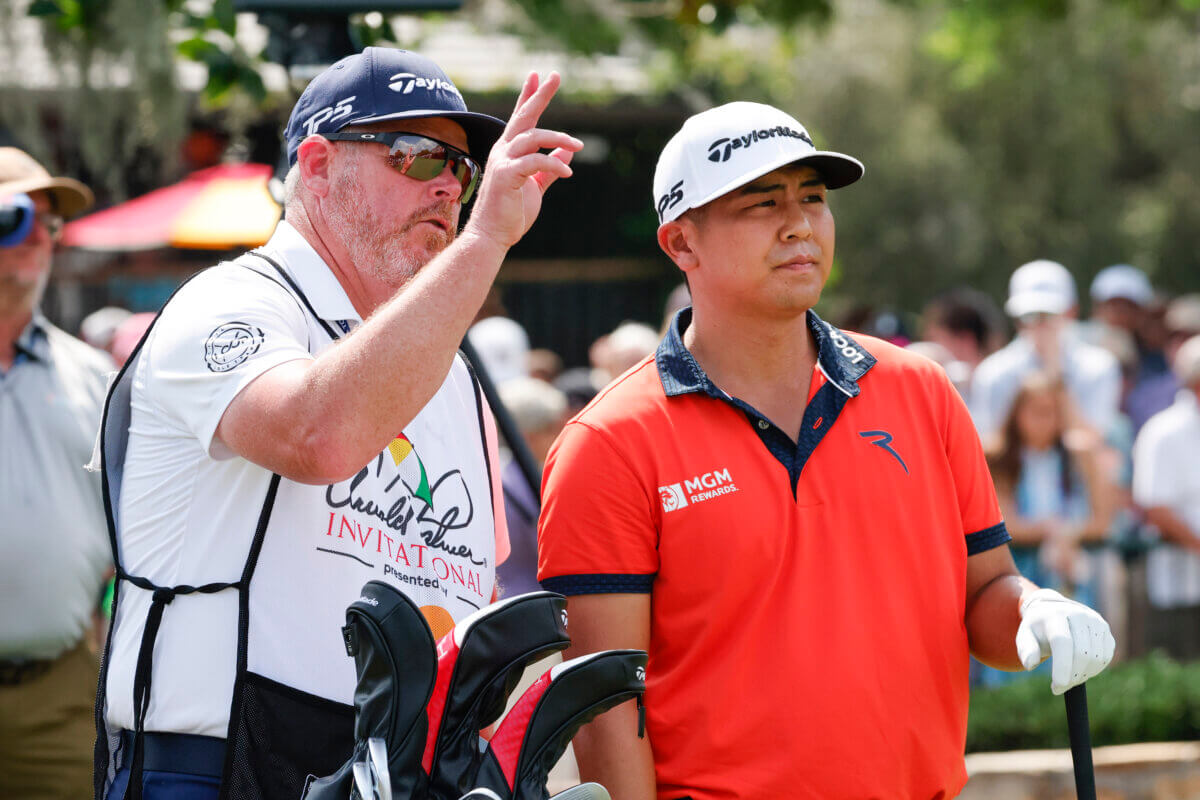
Why do you mike up some players, they give you a tutorial of
Why, what and where. They want to be on air for some reason. Also
The drama of missing the shot shown on tv I blame on the cameraman, he should move on to the next golfer. No camera no drama. Let them go to acting school instead. Cut out the chatting to the golfer by the analyst, let them stick to business.
Stroke penalty on slow golfer only
Not the group. Taking points away is better than a monetary fine.
I went to the Ridgewood CC tournament this past year and it is glaringly clear that some players just stand around until it is their turn. Same problem as a weekend group at a muni. There is no reason not to walk all the way to your ball, get the info and stand aside if there are player behind you. No reason not to read the other side of the putt while someone else is putting. And the one none of the above mentioned is the attempts to get a ruling–huge delays because a player wants to argue they are in a hole or need an official to navigate a drop for a sprinkler head. Pros should be able to execute the simple rules themselves without waiting for 4 officials to arrive.
So true aabout waiting for officials to instruct them on simple drops. A golf professional doesn’t know how to take relief from a cart path or sprinkler head!?
Why not let the caddies use lasers for distance?
Excellent idea! I just caddied in a US Amateur qualifier, and we finished 36 holes in just over 8 hours with caddies and players able to use lasers.
Allow the use of DMD’s and scrap the yardage books
There are a few who take too long on almost every shot. But around the green there are too many pros who take too long to get a read and then go through a too long routine. And that is really frustrating to me to watch. Also don’t like the guys who mark a 2 footer and have the caddy clean the ball, then spend forever lining up the line on the ball with the break.
Easiest solution. All players start on the clock once you put the first ball in play. The first golfer who arrives at his ball has 1.5 minutes to put it into play. The next golfer has 30 secs and so on. 3 player group takes the max of 2.5 minutes unless a possible loss ball. Penalty strokes for not meeting the timelines. Rules official with every group so one can get an immediate ruling.
I play 3 times per week. The group I play with our rounds do not reach 4 hours 99% of the time. Gives us an enjoyable round of golf. Our handicaps will not allow us to post a score above the maximum score which is triple bogie so picking up you just get the max score. Speeds time of play. Consider that for yourself in local play.
If strokes can’t be agreed upon, then start docking the players Fed Ex points, since money isn’t the metric to keep your card. Money isn’t motivating these guys anymore, but a 25, 50, 75, 100 or some graduated docking of points would get them moving.